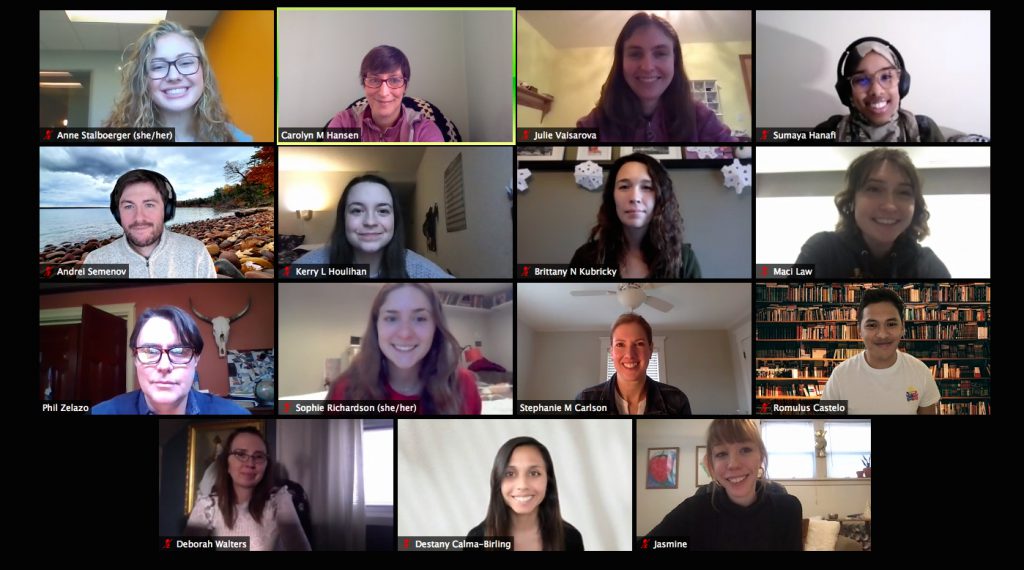The Institute of Child Development (ICD) is home to the Developmental Social Cognitive Neuroscience Lab, co-directed by Stephanie M. Carlson, PhD, and Philip D. Zelazo, PhD. They lead a team of researchers who examine the development and interaction of executive function (EF) and self-regulation, social understanding, and pretend play and symbolism in young children. This month, Carlson and Zelazo shared the lab’s current outreach activities and their goals around community engagement for the upcoming year.
What are some ways you’ve shared child development science with the community recently?
The lab is committed to disseminating the science of child development and we do this in a number of ways. The team wants to help parents, teachers, business leaders, and policymakers understand the importance of executive function skills, including aspects of attention, memory, and impulse control. These skills depend on healthy brain development and are strongly influenced by early childhood experiences.
In 2020, the lab gave several presentations to community groups, schools, and government agencies, including the Alabama Department of Education Office of Early Childhood, Kansas State University, United Way of Tucson, AZ, St. Paul Academy in St. Paul, MN, and The Breck School in Golden Valley, MN. Zelazo and Carlson also contributed to Mount Sinai Parenting Center’s efforts to create a pediatric resident curriculum on the development of executive function skills in childhood.
How have ICD students been involved in your efforts?
ICD students – both graduate and undergraduate – are really the heart of the lab and make it continually exciting to discover and share new findings through collaborative research. Students contribute to publications and several ICD graduate students (Andrei Semenov, Amanda Grenell, Rebecca Distefano, Romulus Castelo, Jasmine Ernst, Julie Vaisarova, Pearl Li) have already written blogs aimed at parents and educators for our University-based start-up, Reflection Sciences.
Together with Zelazo, PhD students Brandon Almy and Andrei Semenov have worked with philanthropic foundations (Bezos Family Foundation and the Chan-Zuckerberg Initiative) to share knowledge about child development.
Several students worked with local high schools to teach them about research and support them as they prepare presentations for the upcoming meeting of Society for Research in Child Development.
What are your lab’s goals for outreach/community engagement in 2021?
The team is committed to community engagement and encourages students to participate in outreach activities. For example, Romulus Castelo started an internship at Northside Achievement Zone. There is also an ongoing collaboration with the Avalon School, a charter school in St. Paul serving middle school and high school students. Andrei Semenov and Destany Calma-Birling have worked with the school directly.
Additionally, Carlson is working on a campaign with the National Head Start Association to raise awareness of importance of EF among Head Start teachers.
Why is it important to engage the community in child development research?
The lab has a responsibility to share what they know about children’s development, including how to support this development as parents and teachers. It’s also important to raise awareness about the value of scientific research on children, and encourage families to participate in this research, especially those who are traditionally underrepresented in this process.




